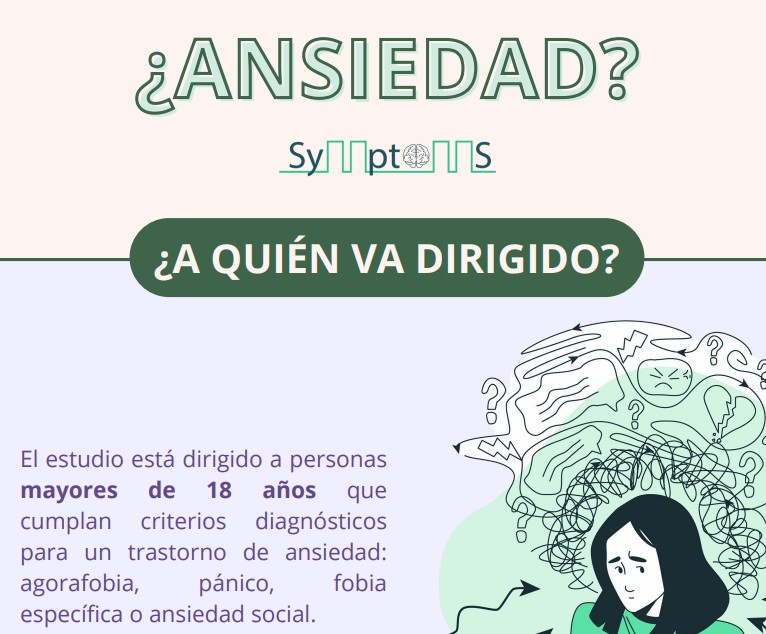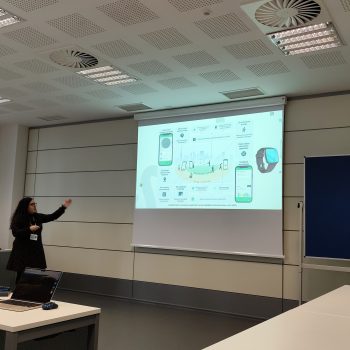
Join an RCT for anxiety disorders to be part of research that generates real impact
At UJI, researchers of the GEOTEC and LabPsiTec research groups have long collaborated and developed a novel, smartphone-based treatment for anxiety disorders rooted in location (e.g., agoraphobia, fear of open spaces, crowded places, bridges, highways, etc.). Together, they developed a smartphone and smartwatch app that instrumentalizes so-called “exposure therapy”, a core component of the well-recognized Cognitive Behaviour Therapy, which is a proven effective treatment for anxiety disorders. The core idea behind exposure therapy is to arm the patient with specific coping mechanisms (e.g., recognizing negative thought processes, breathing exercises, relaxation exercises) and gradually expose him/her to the feared situation.
The ongoing collaboration between GEOTEC and LabPsiTec is now culminating in the SYMPTOMS-JIT project. The project’s main objective is to develop and test the effectiveness of the first in vivo exposure therapy for anxiety disorders fully instrumented and guided through mobile and wearable devices, to offer just-in-time psychological interventions, that is, therapies that provide feedback to patients in real time based on their behaviour and actions. Research activities in the SYMPTOMS-JIT project are now entering in its final stage, with a large-scale randomized controlled trial (RCT) scheduled to begin in April 2025. RCTs are the gold standard for evaluating the effectiveness of new treatments and interventions, which is a crucial step in validating the effectiveness and acceptability of the SYMPTOMS-ET smartphone-aided treatment as a complement for traditional treatment.
In this RCT for anxiety disorders, using a traditional 2-arm design, 144 patients with anxiety disorder will be recruited. After an initial evaluation and compliance with treatment conditions, each patient will be randomly assigned to a treatment group: half will receive traditional treatment (without the mobile app) and the other half will receive treatment with the SYMPTOMS-ET app (under the guidance of a therapist).
Yet, the success of RCTs in general depends heavily on participant recruitment, a persistent challenge in clinical and social research. By joining an RCT, individuals directly contribute to advancing science, improving public health, and shaping evidence-based policies. Poor recruitment delays studies and compromises results, wasting valuable resources. Your participation matters and your involvement helps generate reliable, unbiased data, contributing to evidence-based policies and better health and societal outcomes. Interested in participating in the upcoming randomised controlled trial? Click in the figure below to find more information.
- Posted by geoadmin
- On 25 April, 2025
- 0 Comments





0 Comments